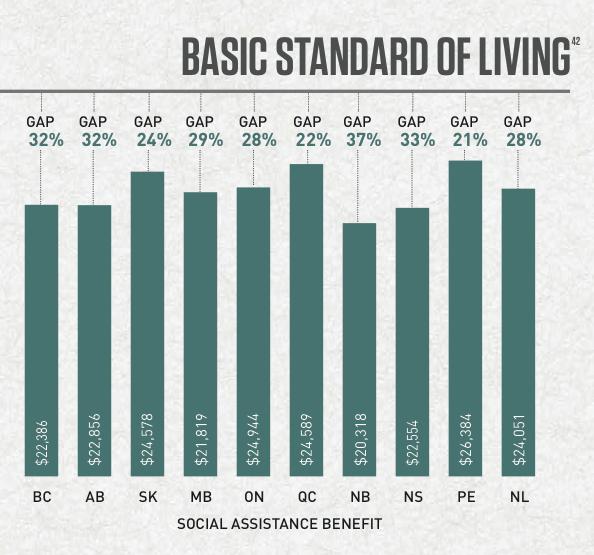FOOD (IN)SECURITY ! Every year, Food Banks Canada releases a report called Hunger Count. As Hunger Count 2014 explains “Once one has fallen on hard times, it can be very difficult to climb back up. This is true for any person in Canada, and particularly for people managing long-term physical or mental health issues, people with disabilities, indigenous peoples, immigrants, and refugees. The systems we have put in place to ensure individuals and families do not fall into destitution often fail to do the job” and that “without poverty, food banks would not need to exist”.! The report outlines five areas for action that would significantly reduce the need for food banks. The fourth area is “reduce the incidence of child poverty and address poverty’s harmful effects on children”. Their recommendations for this area include:! “Support the most vulnerable families with young children by rationalizing the current alphabet soup of federal child benefits – including the Canada Child Tax Benefit (CCTB), the Universal Child Care Benefit (UCCB) and the Children’s Fitness Tax Credit – into a new Child Well-Being Benefit.”! “Invest in predictable, stable funding at the federal and provincial levels for professional, affordable, flexible, regulated child care, to contribute to child development and enable parents to enter and remain in the labour force.”! Almost 20,000 New Brunswickers were helped by a food bank in March of 2013. Many of them were families and over a third of those helped were children. A total of 9,076 households were assisted; 5.8% of them for the first time. Close to 10% of those served had a job, and over 70% were receiving assistance from government programs whose purpose is to make sure peoples’ basic needs are being met. This highlights the fact that our minimum wage and social assistance rates are too low. It is telling that Food Banks Canada’s recommendations echo those of Campaign 2000 and our own. It is no longer a question of what needs to be done; it is a question of political will to implement the changes necessary. ! "Several decades of research has shown that childhood poverty, particularly in the early years (i.e. prenatal to age 5), has a profound effect on the physical, mental, and economic outcomes of those who experience it once they reach adulthood. Further, the lower the family income, and the longer poverty persists, the more severe is the effect on adult outcomes.”! (Source: Food Banks Canada (2014). HungerCount 2014. Toronto: Food Banks Canada.)!
! !
!
(Source: Food Banks Canada (2014). HungerCount 2014. Toronto: Food Banks Canada.)!
10






